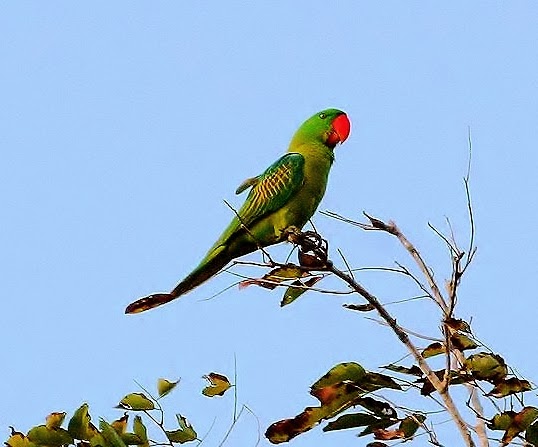 |
| Photo by Mehdhala Ouate (Internet Bird Collection) |
Common name:
great-billed parrot (en); papagaio-de-bico-grande (pt); perruche à bec de sang (fr); loro picogordo (es); schwarzschulterpapagei (de)
Taxonomy:
Order Psittaciformes
Family Psittacidae
Range:
This species is found in Indonesia, from East Nusa Tenggara to Maluku and North Maluku, and also in East Timor and in the southernmost islands of the Philippines.
Size:
These birds are 38-41 cm long and weigh 260 g.
Habitat:
The great-billed parrot is found in primary and tall secondary rainforest, forest edges, mangroves and also coconut plantation. They are present from sea level up to an altitude of 1.000 m.
Diet:
They feed on fruits, flowers, berries and nuts, namely breadfruit. They are also known to damage cultivated areas.
Breeding:
Great-billed parrots breed in August-March. They nest in a tree hollow, where the female lays 2 eggs. She incubates the eggs alone for 25-28 days. The chicks fledge 60-65 days after hatching.
Conservation:
IUCN status – LC (Least Concern)
This species has a relatively large breeding range and a global population estimated at 110.000 individuals. The population is suspected to be in decline owing to ongoing habitat destruction and unsustainable levels of exploitation for the cage bird trade.







